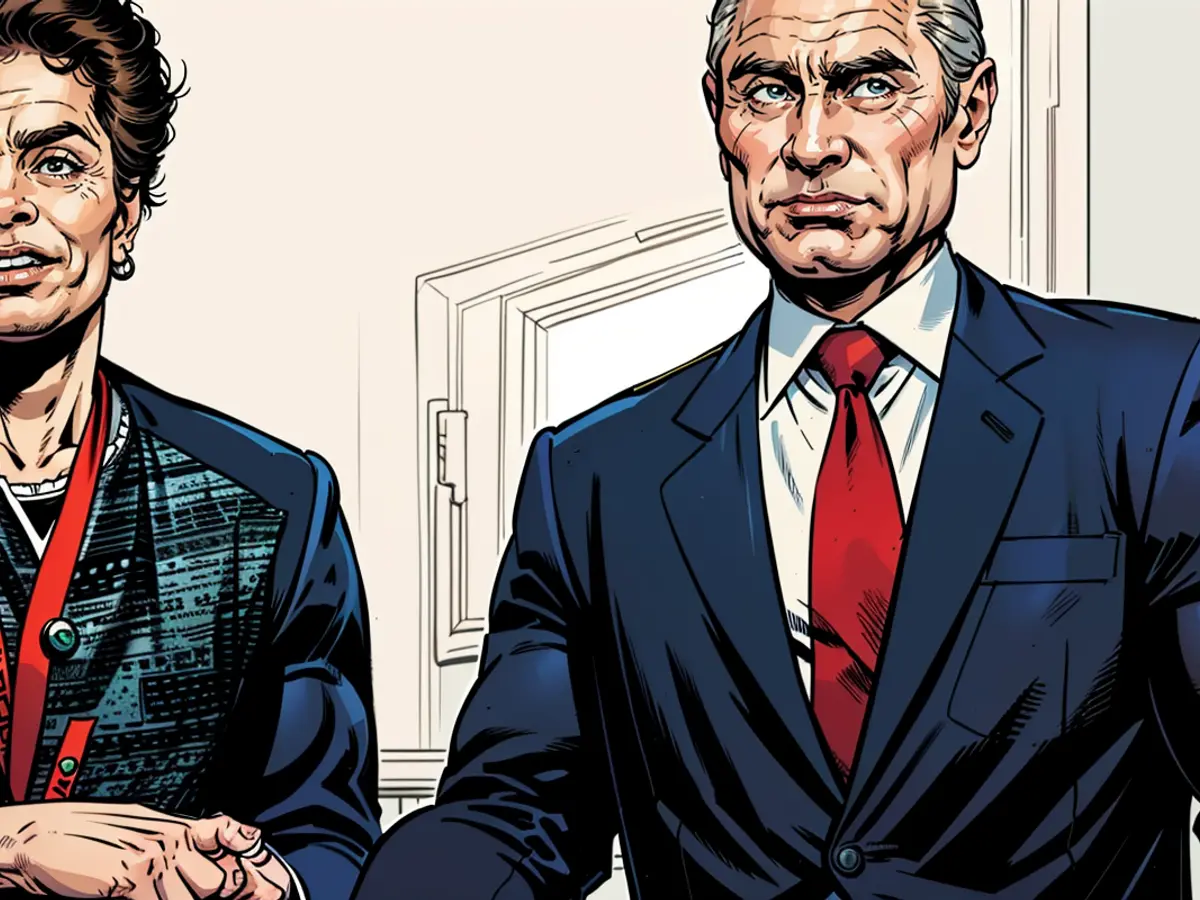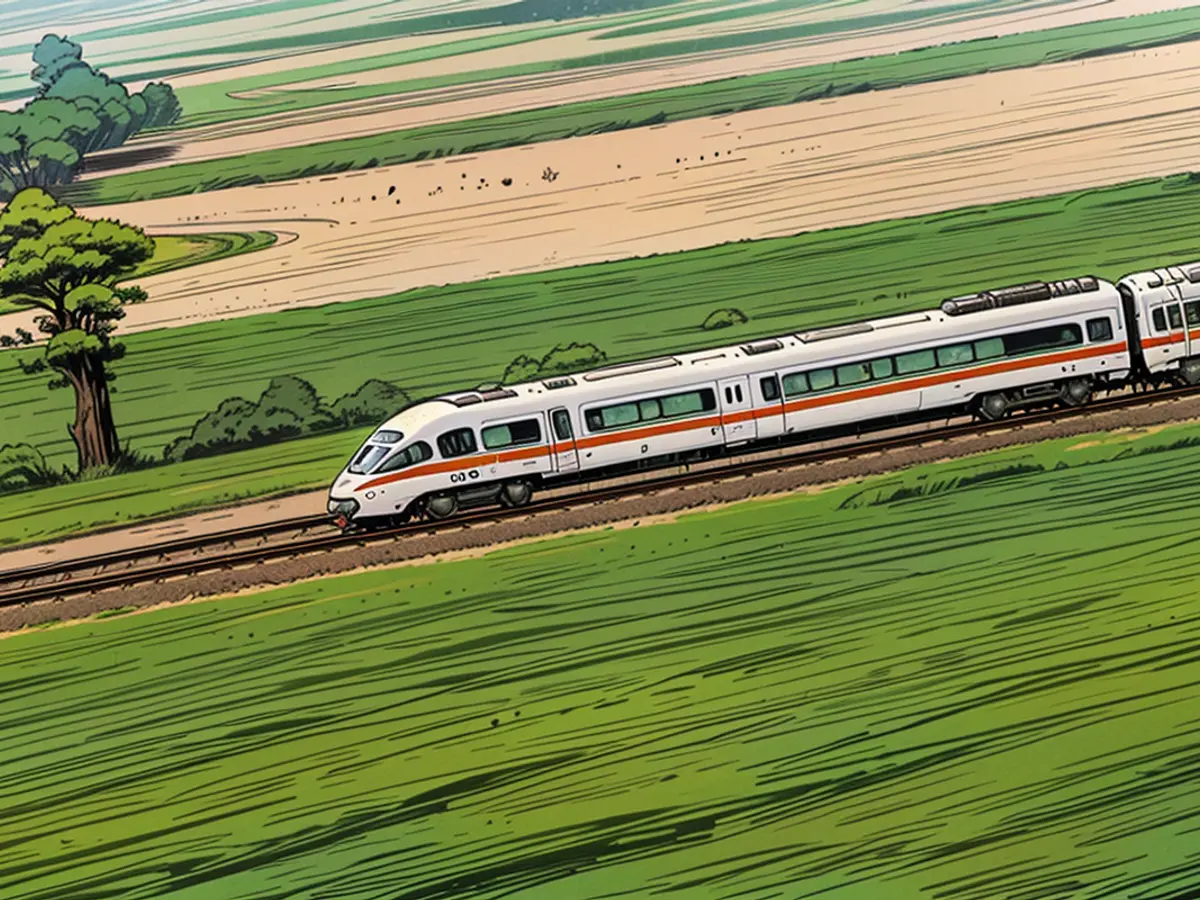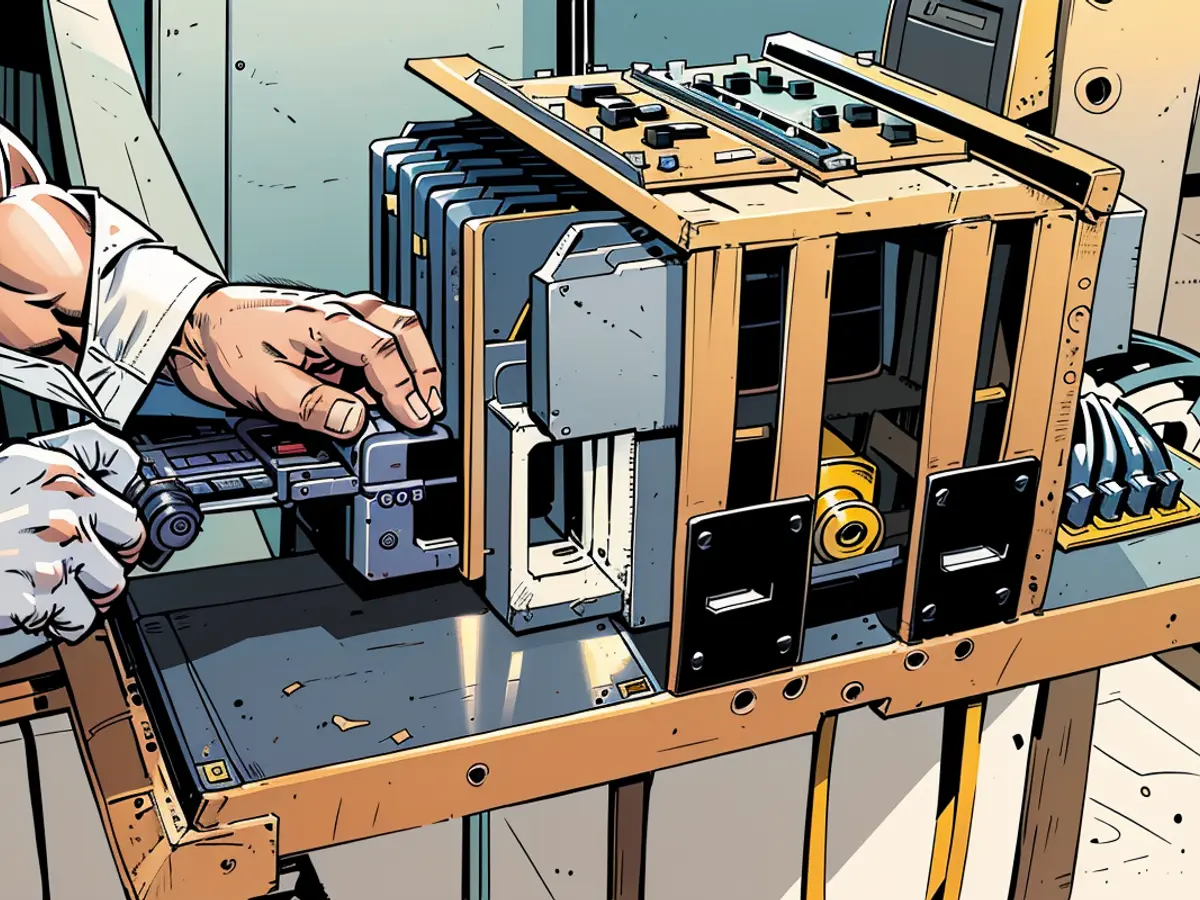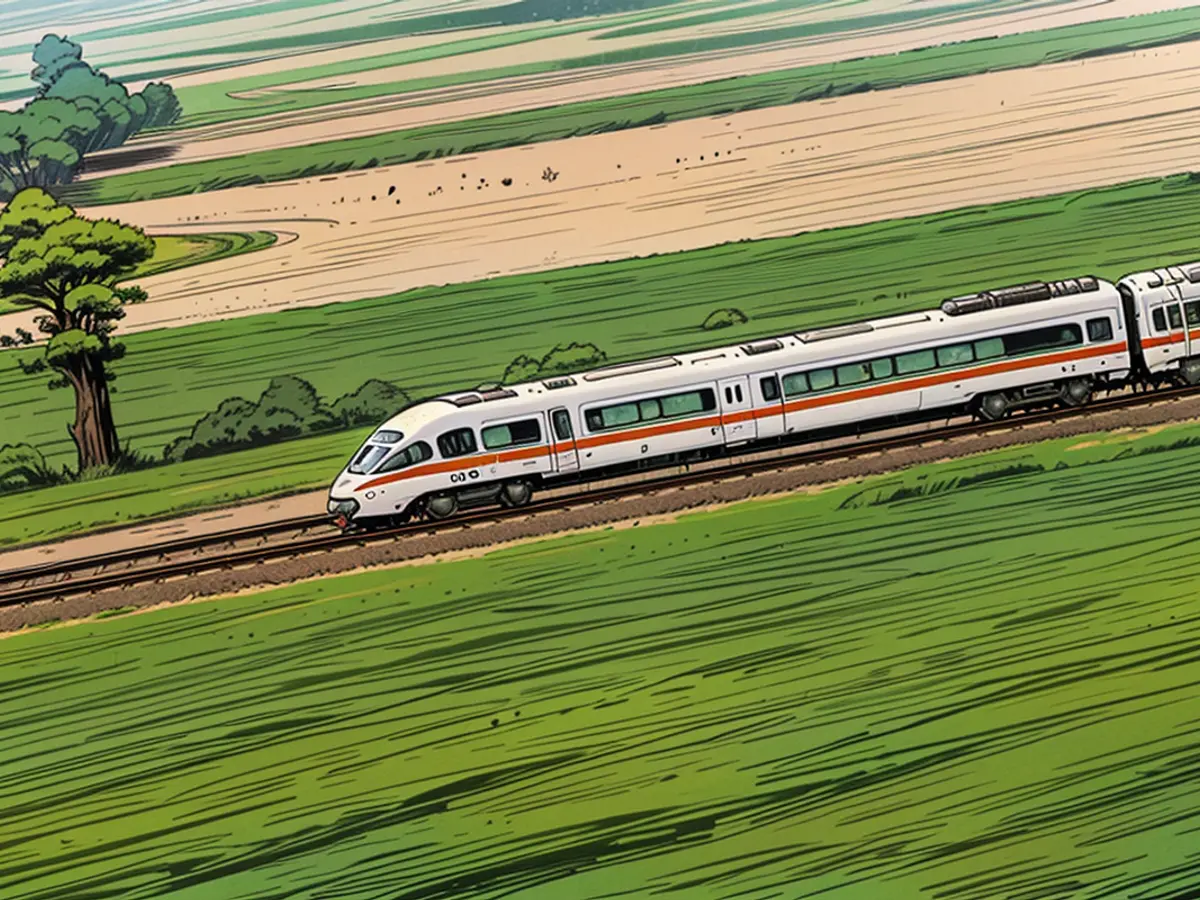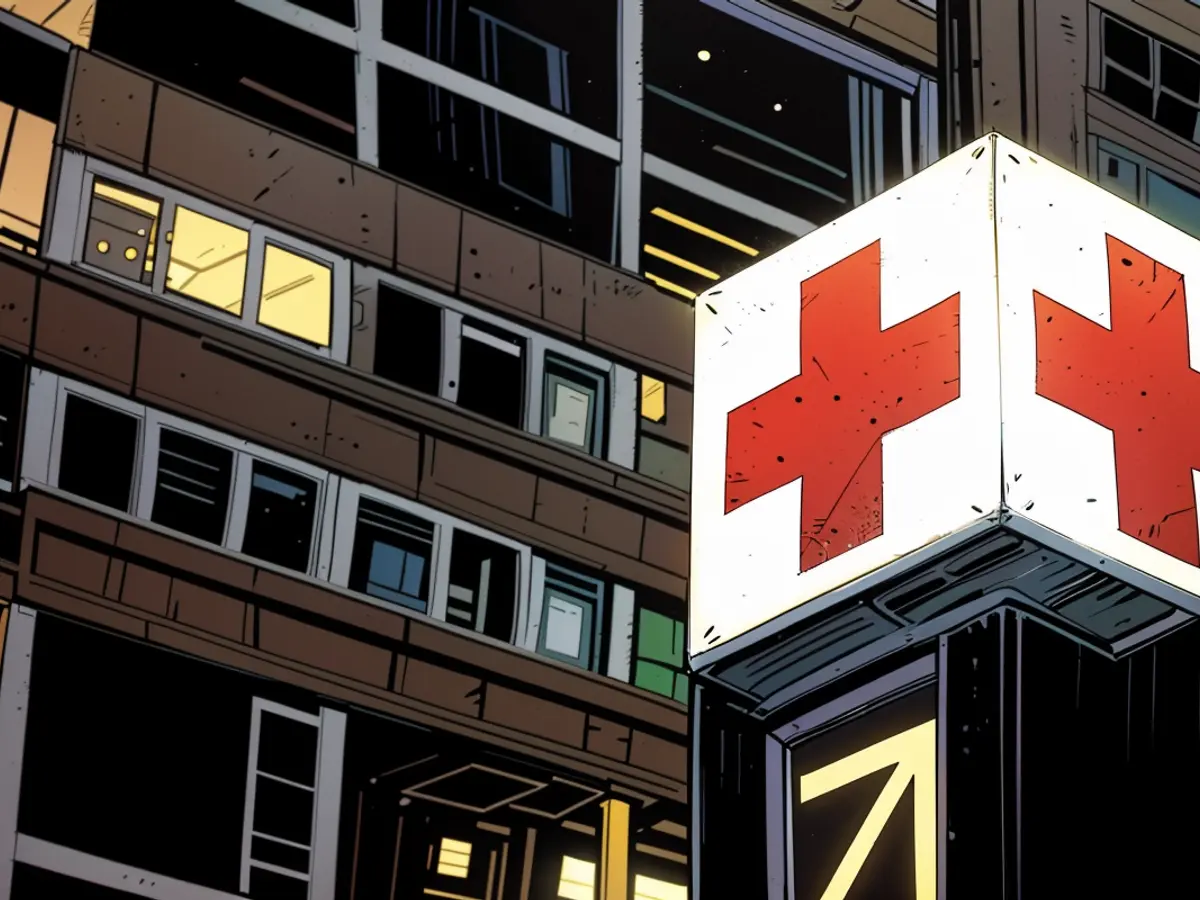Business Summit - Russia prepares for a long-term economy focused on conflict.
Putin, the leader of Russia's government, has vowed to modernize his country's war economy following nearly three years of his assault on Ukraine. In his speech at the 27th St. Petersburg International Economic Forum on Friday, Putin stated that both Russia's overall economy and its military forces must advance rapidly in terms of technology. Despite the Western sanctions, Putin asserted that Russia's economy is faring well, has a significant impact on global trade, and is triumphing in the conflict.
Putin has issued a slew of measures for enhancing Russia's defense industry to produce an increased amount of weapons and ammunition. During a conference centered on defense, participants stated that Russia produces weapons and ammunition at a quicker rate and at a quarter of the price of Western nations.
Russia has been preparing for a war economy for many years, it was claimed. The number of businesses - even private sector ones - has increased dramatically in the past two years since the war commenced. "There are now over 850 of them," said Manturov. "Today, the military-industrial complex serves as the driving force behind the economy," declared Fradkov, an economist who serves as the chairman of Promsvyazbank and the son of Mikhail Fradkov, the ex-prime minister and the director of the foreign intelligence service SVR.
Putin is eager to accelerate the production of required military supplies while the West, due to its own scarcities, cannot swiftly furnish the promised weapons and ammunition to Ukraine. As a result of the war economy, the Russian leadership anticipates an economic expansion of 2.8 percent this year.
The Russian government will devote roughly 110 billion euros to defense matters this year. In addition, there are 34 billion euros allocated for national security and security agencies. This equates to 38.6 percent of Russia's total state expenditures or 8 percent of its GDP. For the first time, Russia is investing more money in the military and security agencies than it is in social programs.
During St. Petersburg's yearly economic forum, which has been ongoing since Wednesday and will conclude on Saturday, delegates and businesspeople from various countries are attending, including the United States, numerous EU countries, China, and South America. Taliban representatives are also present, as Russia had announced its intention to remove their terrorist designation in Russia and collaborate with the Taliban government in Afghanistan.
Putin notified the forum of Moscow's planned "asymmetric response" to Western weapons distribution to Ukraine, which could encompass attacks on Russian territory. Moscow is currently deliberating on its reaction to Western participation in the Ukrainian conflict.
Putin made it clear that Russia does not align with the predictions of many who earlier trusted that Western sanctions would disable Russia's war machine. The allies of Ukraine, such as Germany, initially attempted to halt the Russian war machine through sanctions. Instead, Russian troops have made gains in the east of Ukraine for several weeks. During the forum, Chinese entrepreneurs discussed specific instances of how they are helping Russia complete sanctions-impacted projects.
Despite the pressure from Western sanctions, Russia's economy, according to Western experts, is still fairly robust. The Vienna Institute for International Economic Comparisons (wiiw) determined in an analysis that the majority of Western firms are still conducting business in Russia, with just 9.5 percent or 359 of the foreign businesses having exited due to Russia's annexation of Ukraine. The top firms, responsible for around 30 percent of foreign company revenue in Russia, were the ones to depart.
Additionally, 32.2 percent of the firms (1214) decreased their operations, according to the Zi Foreign Trade Association's studies. Numerous companies remain unsure. Germany exceeds the average with 11 percent of firms leaving and possesses a share of around 37.5 percent of total turnover from foreign firms in Russia. Companies such as Metro, Globus, and Ritter Sport continue to operate in Russia.
However, Western businesspeople are anxious about the potential seizure or nationalization of their assets by the Russian authorities, who might do so in retaliation for the freezing of Russian assets overseas. Putin recently signed a decree permitting the confiscation of US assets in Russia as a reaction to similar measures taken by Washington.
Conclusion
Putin's promises to upgrade Russia's war economy and spend a substantial portion of the country's resources on defense expenditures indicate that despite the sanctions imposed by the West, Russia is continuing its aggression in Ukraine and seeking to strengthen itself through a war economy. With the presence of representatives from various countries and even the Taliban at the St. Petersburg International Economic Forum, it seems that the world is watching Russia's moves and their efforts to assert their power.
